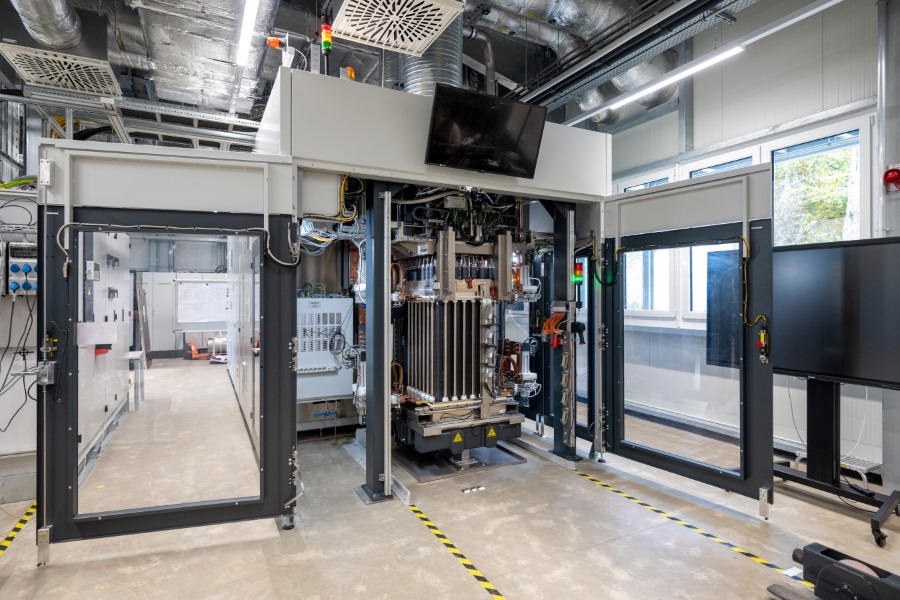The Hybrion stacks, developed and produced by Bosch in Bamberg, each have a rated power of 1.25 MW and produce around 23 kg of hydrogen per hour. The electrolyzer was built by FEST, a company based in Goslar, Germany. The hydrogen produced supplies various applications within Bosch’s new hydrogen landscape, a facility designed to showcase hydrogen production, storage, and use across the value chain.
One of the centrepieces of the landscape is Bosch’s fuel-cell power module (FCPM), which operates continuously inside a ‘lifetime container’ to test durability under real-world conditions. Hydrogen from the electrolyzer feeds the FCPM, which in turn generates electricity used partly to power the electrolyzer. Bosh began series production of its FCPM at its Stuttgart-Feuerbach plant in mid-2023, and the system has since been nominated for the German President’s Future Prize.
“Hydrogen plays a central role in a climate-neutral world, which is something we’re committed to achieving as a society in Germany and Europe,” said Marus Heyn, member of the Bosch board of management and chairman of the Mobility business sector. “The official start of operations for our electrolyzer and the opening of the hydrogen landscape mark an important milestone for us.”
The Bamberg site also hosts a second test station where each Hybrion stack undergoes performance and efficiency checks before delivery. The facility includes a 21 m hydrogen tank capable of storing gas at up to 50 bar.






